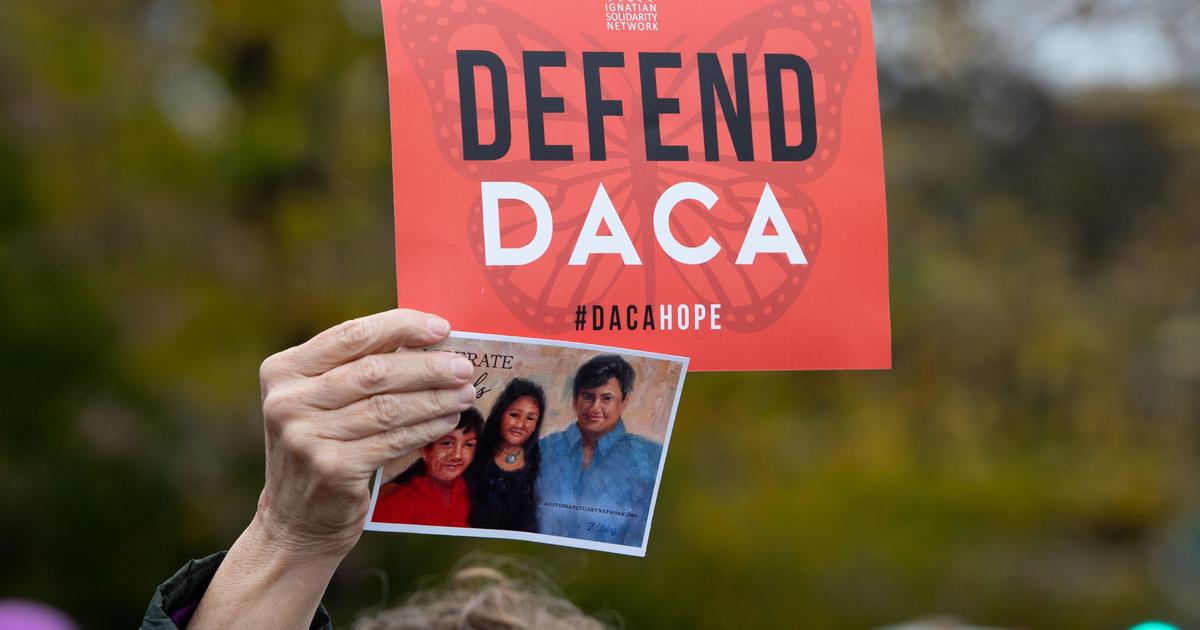A federal appeals court on Thursday weighed the fate of the Deferred Action for Childhood Arrivals policy, or DACA, the Obama-era program that currently allows more than half a million undocumented immigrants brought to the U.S. as children to live and work in the country without fear of deportation.
Enacted in 2012 to protect a population colloquially known as “Dreamers,” DACA has been the subject of a years-long court battle and remains in legal jeopardy due to a lawsuit by Texas and other Republican-led states that oppose the policy.
On Thursday morning, a panel of judges on the New Orleans-based Court of Appeals for the 5th Circuit heard oral arguments over the legality of a Biden administration effort in 2021 to codify the program, initially implemented through a memo, into a federal regulation. At the lower court level, U.S. District Court Andrew Hanen declared the Biden administration’s move unlawful last year.
Hanen and the 5th Circuit have also ruled against the original DACA memo in recent years, finding that the Obama administration did not have the legality authority to grant deportation protections and work permits to hundreds of thousands of unauthorized immigrants without congressional action.
But both Hanen and the 5th Circuit limited their rulings against DACA, closing the program to new applicants but allowing current recipients to continue renewing their two-year work permits and deportation deferrals.
Lawyers representing the Biden administration and DACA enrollees argued before the 5th Circuit on Thursday that Texas does not have legal standing to sue over the program, saying the state has failed to prove it is harmed by it. They cited a 2023 Supreme Court ruling which allowed the Biden administration to narrow immigration enforcement by finding that Texas and Louisiana lacked standing to challenge the policy.
Texas has argued it is harmed by the policy due to educational and health care costs it incurs because of DACA recipients living in the state. A lawyer representing Texas said the program’s termination would likely prompt DACA enrollees to self-deport, alleviating the alleged financial costs.
Brian Boynton, the Justice Department lawyer representing the Biden administration, asked the 5th Circuit to keep DACA intact for current recipients in the event that it again rules against the initiative.
Thursday’s arguments were presided over by circuit judges Jerry Edwin Smith, an appointee of Ronald Reagan; Edith Brown Clement, an appointee of George W. Bush; and Stephen A. Higginson, an appointee of Barack Obama. The 5th Circuit’s 2022 ruling against the original DACA policy was issued by a panel that included a Bush appointee and two Trump appointees.
Any ruling by the 5th Circuit would likely be appealed to the Supreme Court, which in 2020 prevented the Trump administration from ending DACA on administrative grounds but has not yet weighed in on the legality of the program.
DACA has allowed certain immigrants who crossed the U.S. southern border illegally or overstayed visas as children to live and work in the country legally if they meet several requirements. They must have come to the country before June 2007 as children younger than 16. They were also required to graduate from an American high school or serve in the military, and could not have had a serious criminal record.
As of the end of June 2024, there were roughly 535,000 immigrants enrolled in DACA. More than half of them lived in California, Texas, Illinois and New York, according to government data.
DACA’s fate could also hinge on the outcome of the presidential election next month. Vice President Kamala Harris has been vocally supportive of the initiative.
“As the Attorney General of California, as a United States Senator, and as Vice President, I fought to defend and protect DACA,” Harris said in a statement Thursday. “And as President, I will ensure we live up to our values by fighting to protect Dreamers and urging Congress to pass an earned pathway to citizenship for these young people.”
Despite expressing sympathy for “Dreamers” at times, Trump tried to cancel DACA in 2017. It’s unclear if he would again attempt to end the program if elected. He has separately vowed to order mass deportations of undocumented immigrants if he returns to the White House.

